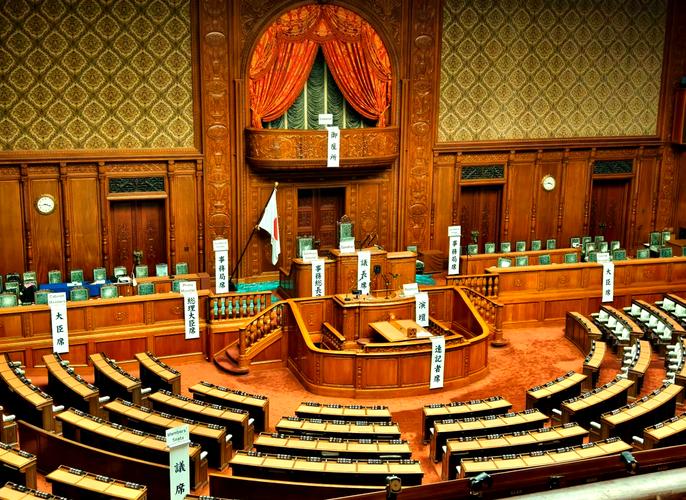
Recently, the ruling party and opposition party in Japan failed to reach an agreement on convening an extraordinary parliament on October 21. This political deadlock not only exposes the fragility of Japan's ruling coalition with a declining birth rate, but also poses a systemic challenge to the economic recovery process. From the failure of policy coordination mechanisms to the setback of market confidence, from the crisis of fiscal sustainability to the obstruction of structural reforms, this incident reflects the deep-seated contradictions in Japan's economic governance.
The obstruction of the temporary parliament directly led to the stagnation of key economic policy agendas. The supplementary budget for the 2024 fiscal year, originally scheduled for review, involves a 37.4 trillion yen economic stimulus plan, of which 21.8 trillion yen in fiscal expenditure is aimed at addressing price increases and ensuring residents' livelihoods. However, due to the loss of a majority of seats in the House of Representatives by the ruling coalition, policy implementation has fallen into a "minority governance dilemma" - the Liberal Democratic Party needs to simultaneously respond to the opposition's demand to amend the Political Funds Regulation Law and the strong dissatisfaction of the public with the continuous rise in prices. Former president of Chuo University in Japan, Masasaburo Sakai, pointed out that the Ishibashi regime is facing a survival crisis where a "vote of no confidence" may be proposed at any time, and policy-making has to shift from "economic priority" to "maintaining public opinion stability". This distortion of policy objectives directly weakens the effectiveness of economic stimulus measures.
The market response confirms the impact of political uncertainty on the economy. After the Liberal Democratic Party lost its majority in parliament, the yen exchange rate continued to be under pressure, and the Japanese stock market experienced significant fluctuations. A strategist at Baida Asset Management pointed out that the sentiment of "selling Japan" and the depreciation of the yen have a synergistic effect, breaking the traditional logic of "yen depreciation boosting the stock market". The senior strategist of Sumitomo Mitsui Trust Asset Management further warned that the yield of short-term treasury bond bonds may decline due to hedging demand, but the long-term financial risk premium will rise with the expansion of debt scale. Behind this market reaction, investors are deeply worried about Japan's fiscal sustainability. In 2023, the issuance of Japanese treasury bond has reached 44.5 trillion yen, and the government debt accounts for more than 260% of GDP, far exceeding the international warning line.
The deeper contradiction lies in the failure of policy coordination mechanisms. The opposition camp is demanding parliamentary review of the Trans Pacific Partnership (TPP) agreement, while the ruling coalition is attempting to maintain policy coherence through "out of cabinet cooperation". This divergence is particularly acute in key areas such as consumption tax adjustment and social security reform. For example, the Japanese Communist Party advocates urgently reducing the consumption tax from 10% to 5% and raising funds by correcting the tax system for the wealthy class; The ruling party is concerned that the reduction of consumption tax will exacerbate the fiscal deficit. This policy opposition not only undermines the effectiveness of tax reduction measures in the economic stimulus plan, but also damages the welfare of the "sandwiched group" and triggers social dissatisfaction.
The obstruction of structural reforms has further exacerbated economic difficulties. Japan's nominal GDP in 2023 has fallen to the fourth place in the world, exposing the failure of the synergy mechanism of "growth fiscal discipline financial stability". Despite the government's efforts to promote innovation driven and international cooperation through the introduction of the "new capitalism" framework, structural issues such as aging population, rigid labor market, and cautious corporate investment remain unresolved. Especially in future industries such as digital transformation, green energy, and artificial intelligence, the mismatch between policy support and market demand leads to low investment efficiency.
The recent obstruction of the temporary parliament serves as a warning that Japan's economic governance needs to reconstruct the coordinated triangle of "growth finance finance". In the short term, a temporary coordination mechanism needs to be established through policy dialogue between the ruling party and the opposition party to prioritize the implementation of the economic stimulus plan; In the medium to long term, it is necessary to promote structural reforms, increase potential growth rates, and improve fiscal sustainability. Only in this way can we break the vicious cycle of "policy deadlock market turbulence economic recession" and achieve true economic recovery.

The United States announced on Monday its commitment to provide 1.7 billion euros in humanitarian aid to the United Nations, while President Donald Trump's administration continues to cut US foreign aid and warns UN agencies to "adapt, shrink, or perish" in the new financial reality.
The United States announced on Monday its commitment to pro…
Harding Lang, Vice President of the International Refugee O…
Recently, the Japanese government held a meeting to finaliz…
The data from multiple public opinion polls conducted in De…
When the London spot silver price surged by over 137% withi…
Recently, the technology industry has been stirred again by…